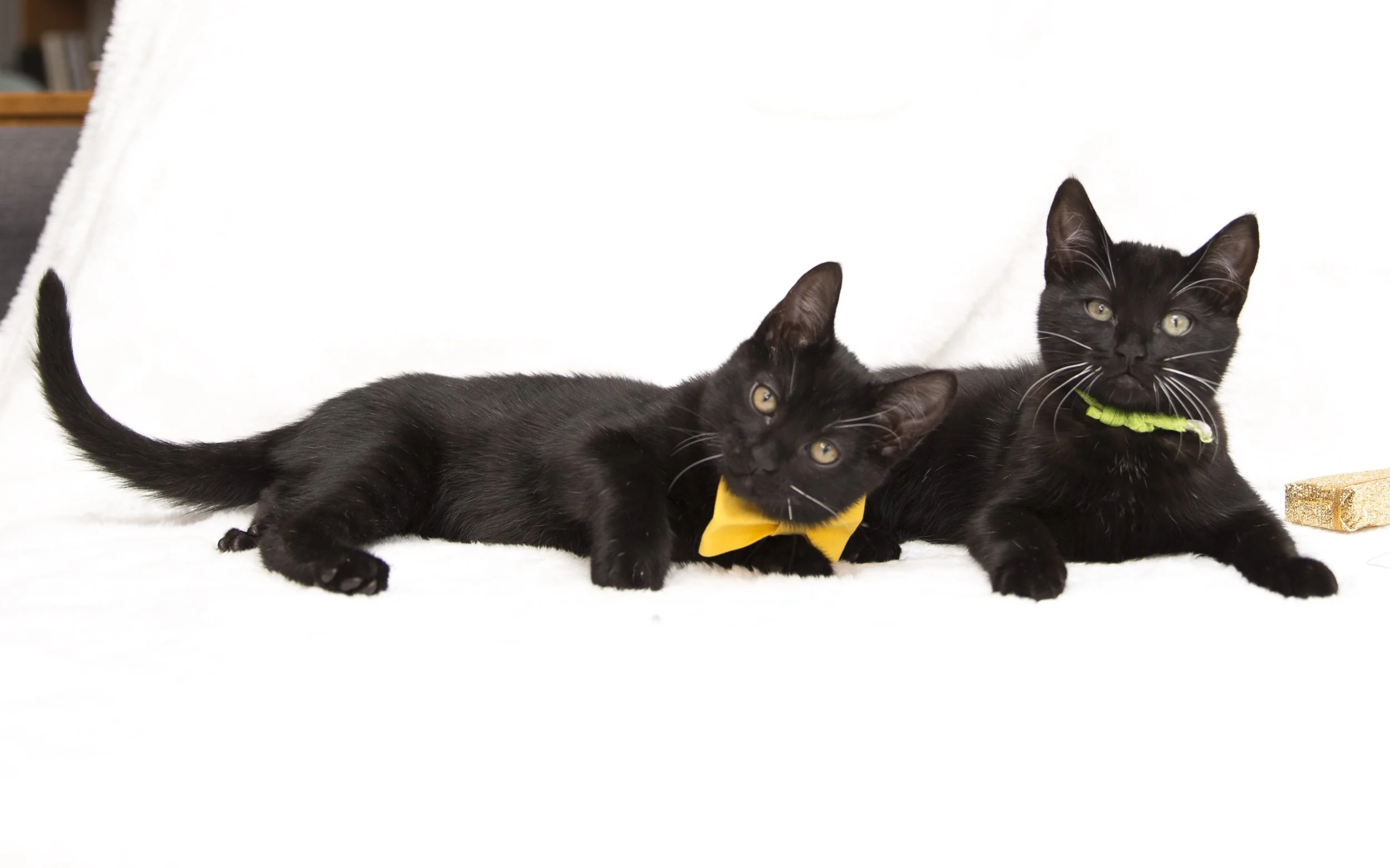The Wonderful World of Wobblers pt. 2
Heracles and Grace by Catitude Photography
Herc by Catitude Photography
In July 2020 we told you about some clumsy cuties with Feline Cerebellar Hypoplasia (CH), a non-contagious, non-progressive condition that causes problems with balance and coordination. We recently had two more kitties come into our care with this condition so we wanted to revisit what CH is, how it affects kitties and what can be done to help these kitties thrive.
Grace and Heracles (aka Herc) were born on August 1st. When one of their siblings passed away at two weeks old, they were all tested for Feline Panleukopenia Virus (Parvo). All kittens tested positive. In CH cats the cerebellum, the part of the brain that controls equilibrium and fine motor skills, doesn’t develop properly which can happen when the pregnant mother has Parvo and passes it to her unborn kittens. CH can also be caused due to trauma to the kitten while in the womb.
Grace by Catitude Photography
Foster Trina McKinlay says “we knew early on something was different about Heracles. At about 12 days he was no longer able to latch onto his mom to nurse, even when we moved the other kittens away, so we had to bottle feed him. As the kittens started to walk, he moved his limbs differently and fell more frequently.”
Eventually we learned that he had moderate CH along with his sister Grace who has a mild version. With VOKRA's help, their fosters became educated about the condition and how to help these kitties manage daily aspects of cat life. With some supports in place, they have thrived and are a lot of fun.
“Despite what we originally thought, they are not high maintenance at all,” says McKinlay. “Herc & Grace have a really cute way of walking where they move their legs from the shoulder and hip joints, where they make exaggerated steps and pinwheel their arms when they play. They are just really wonderful little cats.”
As mentioned in our previous post, CH is not contagious or painful and, unless there are other health issues. The kitty’s life expectancy is the same as a cat without CH. Affectionately known as “wobbly” kitties, they can have difficulties getting around and the level of disability varies. Some only have an odd way of walking while others have significant trouble with mobility.
Adjustments usually need to be made in the home, depending on the severity of the condition, to accommodate for a wobbly kitty. Due to not having fine motor skills, they can be messy eaters. Patience and a washcloth are generally required! Slippery floors such as hardwood can also be a challenge. It is helpful to lay down mats for extra grip. Wobbly kitties have the same desire to use the litter box as other kitties, but they may require a box with low sides or pee pads might be the best option.
Their lack of mobility may benefit some adopters. Wobbly cats usually can’t jump on the furniture or counters. This might be trivial to some, but can be practical or serious for others.
Wobbly kitties may look a little unusual and be some extra work but they make the most amazing companions! One of the best things about them is their nature. As many CH kitty owners say, these cats are some of the sweetest, bravest kitties ever.
If you think you have what it takes to adopt a CH wobbly kitty let us know by applying to adopt at vokra.ca/adopt. When applying, specify you’re interested in adopting a CH cat or kitten.

















